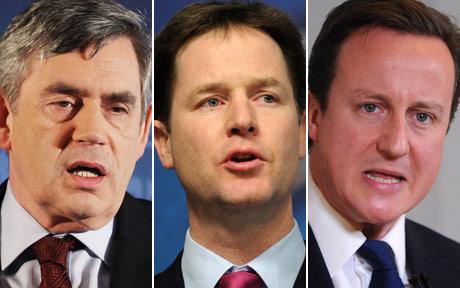The Real World

May 2010 The Psychologist, 23 (5), 365.
As we write this, the UK election has just been announced. As you read this, the result will be known. If you live in Britain, you will have just endured an endless stream of newsprint of television debates of opinion polls. Debate will now be turning to whether the media influenced our opinions significantly and whether the polls measured our opinions accurately.
But perhaps these are the wrong questions to ask — a phenomenon which we cannot attribute to politicians and journalists without looking closer to home. Herbert Blumer famously complained that we human scientists concentrate so exclusively on the process of producing answers (hypothesis testing) that we almost entirely neglect the process of producing worthwhile questions (hypothesis generation). And, as the novelist Thomas Pynchon remarked in his ‘Proverbs for Paranoids’, if you get people asking the wrong questions, you don’t need to worry about the answers.
To explain what we mean, consider the leadership debates. Like the election itself, these still lie in the future. We can’t predict how the candidates will perform but we can confidently predict that the key question that will dominate the press over the following days will be less about what Brown and Cameron said than about who came out on top. This is certainly true of the iconic Nixon-Kennedy debates. All we recall now is how Nixon looked shifty sweaty and swarthy, how Kennedy looked young, vigorous and open and how Kennedy won the day — even though those who only heard the debate on radio as opposed to watching it on television adjudged Nixon the winner.
The point here is that what concerns us in such debates is not so much what we thought ourselves. It is rather what we think that others thought of them (which is not always the same as what others did think of them). In asking ‘who won’ we are dealing with meta-perceptions. And that matters, because in deciding what to think and — especially — what to do ourselves, we look to what other people, especially people like us, think and do.
There is growing evidence, in a whole number of areas, that our sense of socially shared beliefs often impacts on people as much, if not more, than their own individual beliefs. Indeed, Julie Duck, Debbie Terry, Joanne Smith and Mike Hogg have shown us that individual attitudes only predict behaviour to the extent that one’s attitude reflects the perceived group norm. To give but one example, research conducted before the 2003 Gulf War showed that most Americans opposed armed intervention, but that most Americans believed that the majority supported armed intervention and that it was the latter rather than the former which predicted their public actions.
Clearly, Fox News and its like must take much of the blame (or, if you are George Bush/Dick Cheney/Donald Rumsfeld, the credit) for this. And there’s the rub. As recent research has established, mass media may not change a single person’s individual attitude but still have a massive impact on social affairs by changing our sense of what others think. This suggests that the question we ought to be asking after the election is not ‘did the media influence our opinions?’ but rather ‘did the media influence our sense of social norms?’. By the same token, we might move from asking ‘did the polls accurately measure our opinions?’ to ‘did the polls help form social norms?’.
That way, we might get a better understanding of what happened in this merry month of May. New questions for a new Britain. After all, this election was supposed to be all about change. Let us, as psychologists, take that personally.
The Real World
A Migrant is not a migrant by any other name
October 2015
It's a man's (virtual) world
June 2014
Putin: The Naked Truth
April 2014
Genius and creativity (re)explained
October 2013
In praise of asylums
September 2013